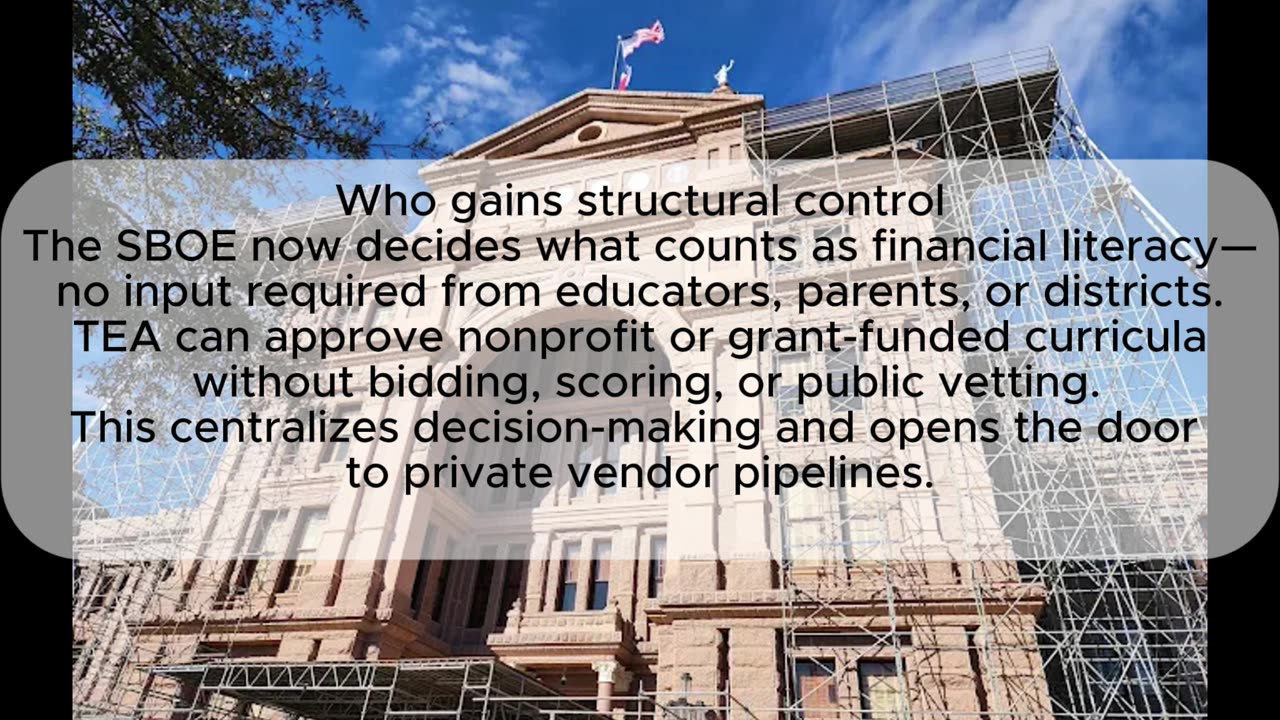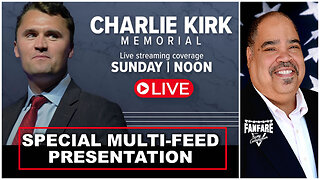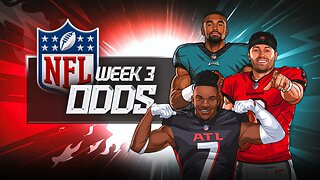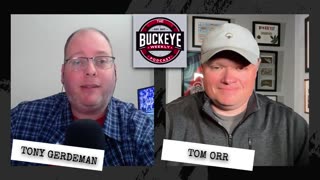Premium Only Content

"🟡 HB 27 – What It Says vs. What It Really Does
Most people will hear that House Bill 27 requires Texas students to take a financial literacy course to graduate—and think that’s a great idea. After all, who doesn’t want kids to learn how to manage money?
But once you read the full bill and follow how it changed during the legislative process, the story becomes a lot more complicated.
Here’s what you need to know:
WHAT HB 27 SAYS IT DOES:
Makes a personal finance class mandatory for high school graduation
Replaces the existing “financial literacy & economics” elective
Allows AP-level courses to count for the new requirement
WHY THAT SOUNDS GOOD:
Students will learn budgeting, saving, credit, debt, and FAFSA
Prepares them for adult life
Gives schools flexibility to use “free” materials or federal grants
BUT HERE’S WHAT HB 27 ACTUALLY DOES UNDER THE HOOD:
🔹 Strips local districts of control.
The State Board of Education (SBOE) now decides which AP courses or outside programs count. Local communities, teachers, and boards have no say.
🔹 Opens the door to private curriculum vendors.
The bill lets schools use nonprofit or corporate-created curriculum with zero vetting, bidding, or public oversight. No safeguards are in place to stop a single vendor from dominating the state market.
🔹 Quietly repeals prior safeguards.
An old rule required 2/3 of this class to be real financial education. That’s now gone. The SBOE can approve any course it calls “equivalent”—even if it’s more ideology than education.
🔹 Offers no state funding to implement.
Districts are forced to offer a new class without any money to hire teachers, train staff, or schedule new sections. That hits small and rural schools the hardest.
🔹 Delays rollout—but only to set up control.
Originally, the new rule was set to start in 2025. After Senate amendments, it now starts in 2026. That gives time for curriculum providers and test vendors to secure their place in the system.
WHO BENEFITS?
Nonprofits like Next Gen Personal Finance
Banks, credit unions, and mortgage associations that supported the bill
AP and test prep companies that want their course approved statewide
The SBOE, which now has sole authority over content and substitutes
WHO GETS SQUEEZED?
Local school boards
Teachers with no say in the new course
Students in low-income or rural districts
Parents who want transparency in what their kids are learning
WHY THIS MATTERS:
We all support the idea of financial literacy. But this bill wasn’t just about that. It started off as a good policy and ended up as a quiet power shift—one that replaces local input with vendor pipelines and state-level control.
BOTTOM LINE:
HB 27 teaches kids about money—but it also teaches us something about Texas politics:
Even “good idea” bills can be rewritten to serve the few, not the many.
👉 Follow me if you want to understand what Texas laws really do—not just what they say on the surface."
-
 UPCOMING
UPCOMING
Barry Cunningham
15 hours agoCHARLIE KIRK MEMORIAL SERVICE FEATURING PRESIDENT TRUMP AND JD VANCE AND MANY OTHERS!
19.1K4 -
 22:13
22:13
iCkEdMeL
2 hours ago $2.80 earnedMass Shooting at Wedding Reception — Witnesses Say Shooter Yelled “Free Palestine”
19.6K13 -
 0:36
0:36
Danny Rayes
2 days ago $1.58 earnedFacebook Needs To Be Stopped...
16.4K6 -
 LIVE
LIVE
Total Horse Channel
17 hours agoAMHA World Show 2025 9/21
786 watching -
 1:29:02
1:29:02
Game On!
1 day ago $6.80 earnedTHEY'RE BACK! NFL Wise Guys Return For Week 3 BEST BETS!
39.8K4 -
 6:16
6:16
China Uncensored
3 hours agoHow Trump Plans on Stopping Russia and China—Without Firing a Shot!
65.7K31 -
 33:13
33:13
Ohio State Football and Recruiting at Buckeye Huddle
15 hours agoOhio State Football: 10 Things We Learned Watching Washington's Win over Colorado State
36K -
 1:14:04
1:14:04
NAG Entertainment
16 hours agoKickback w/ Leon - Rocket League: Road to GC
32.9K -
 30:13
30:13
Degenerate Plays
3 hours ago $0.44 earnedBritish Insults Are Hilarious - Call of Duty: Modern Warfare 2 (2009) : Part 2
18.5K2 -
 6:42
6:42
NAG Daily
20 hours agoCharlie Kirk: His Words. His Vision. His Movement.
41.6K26